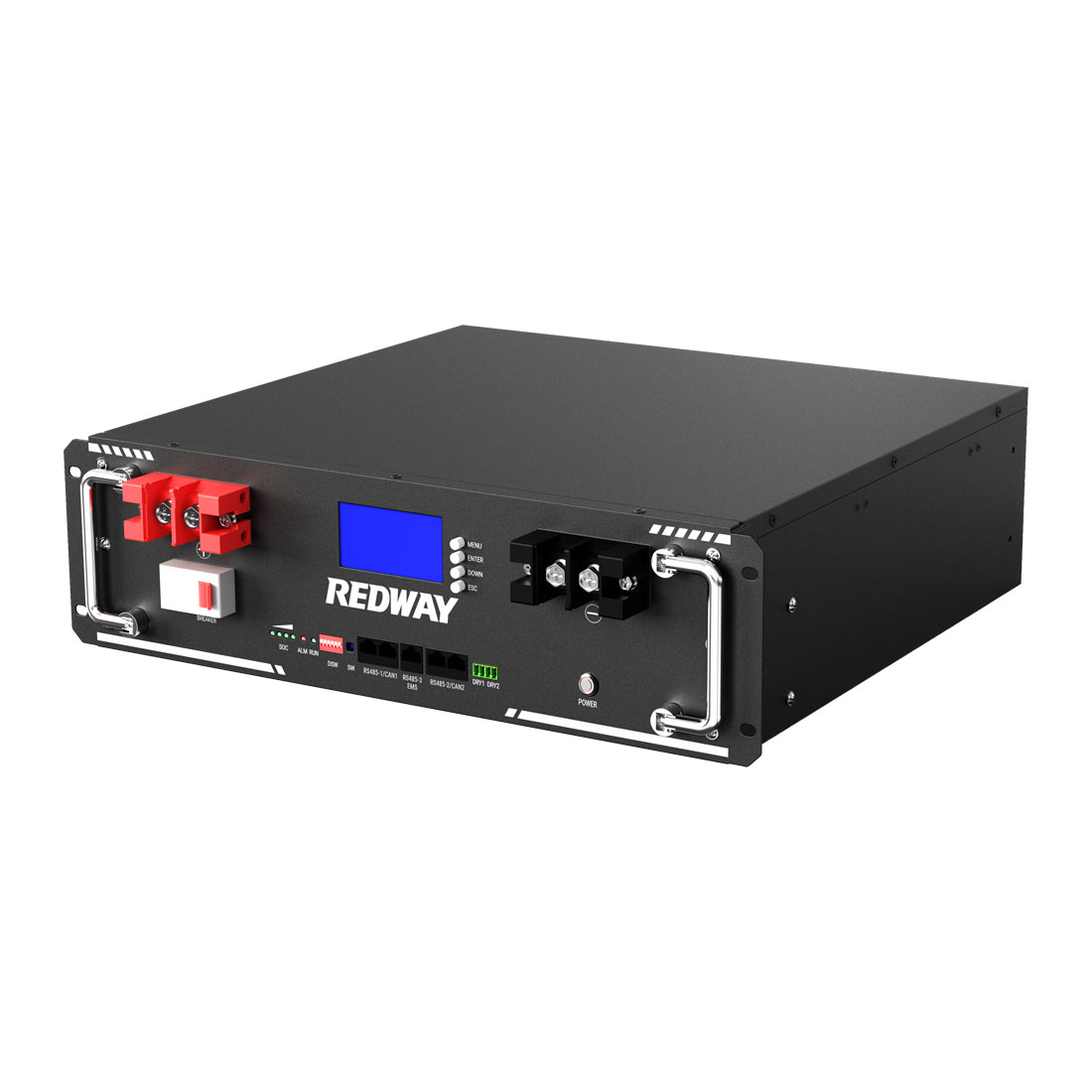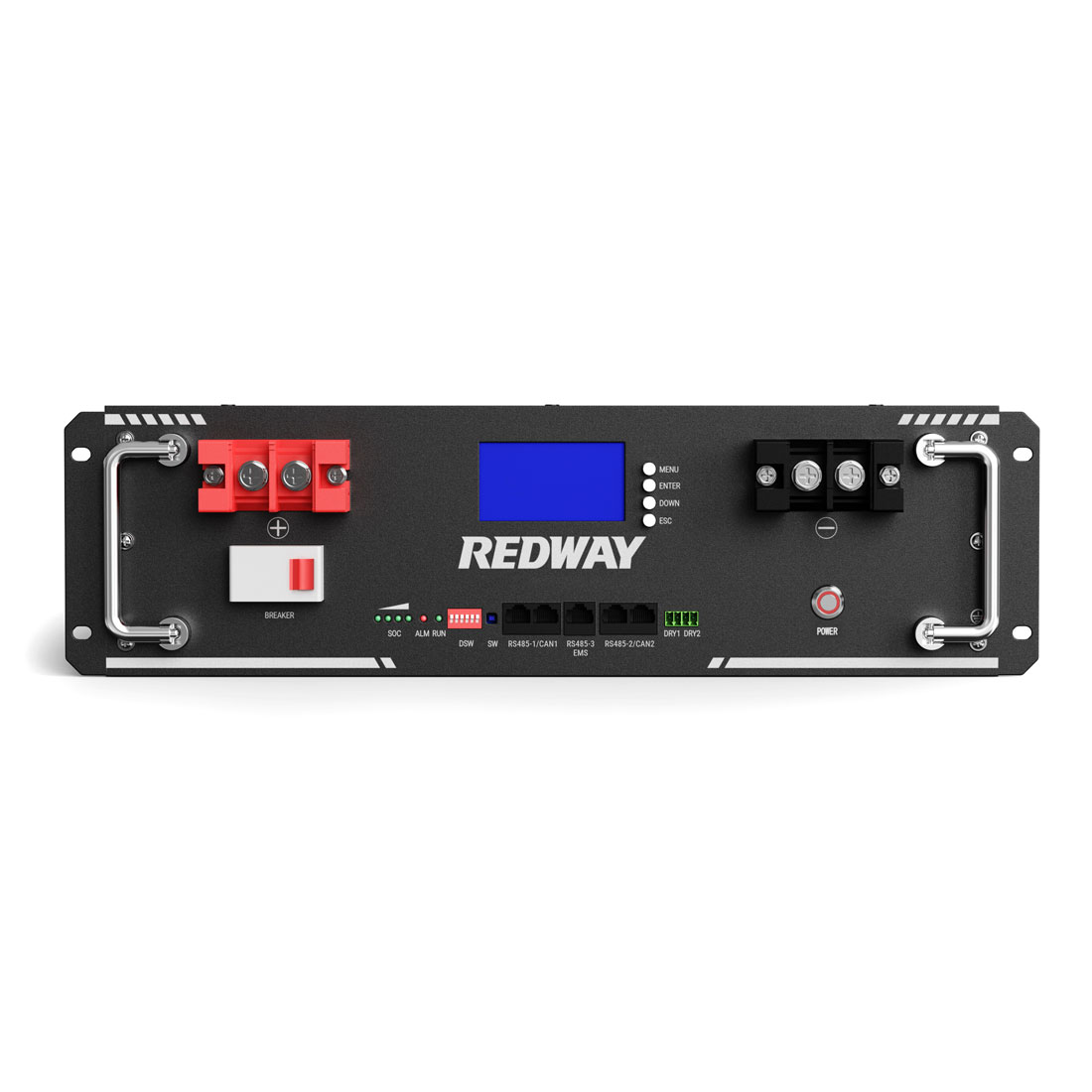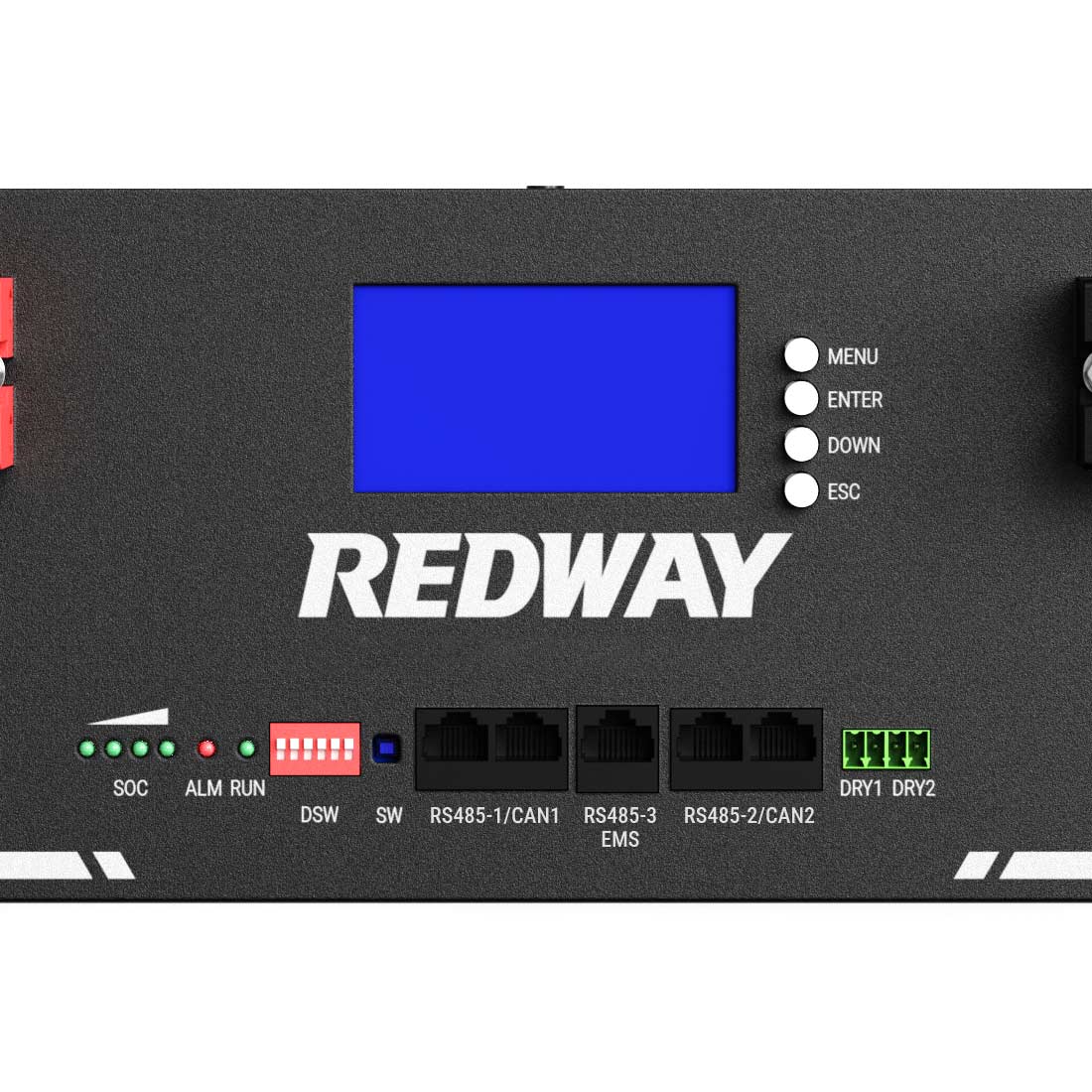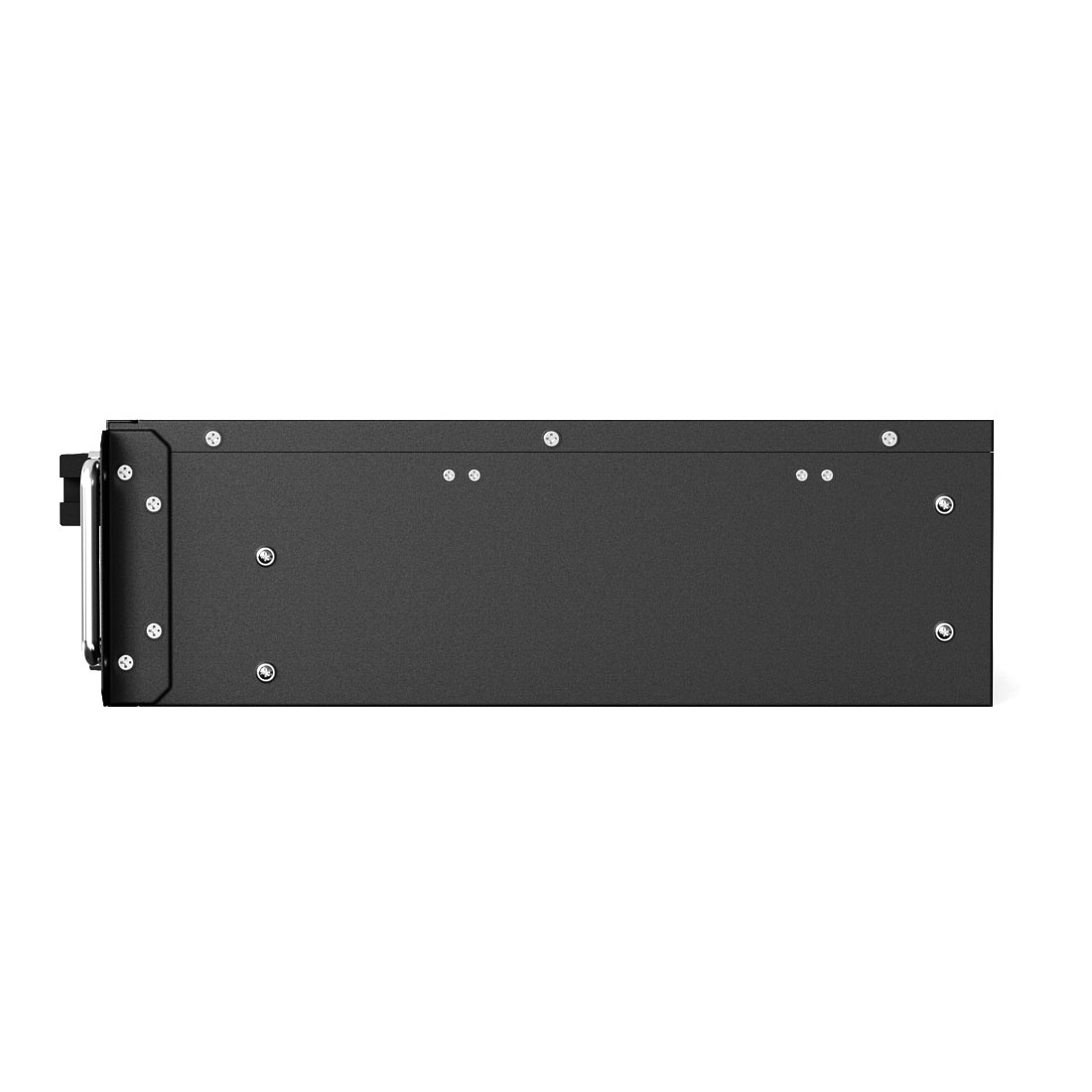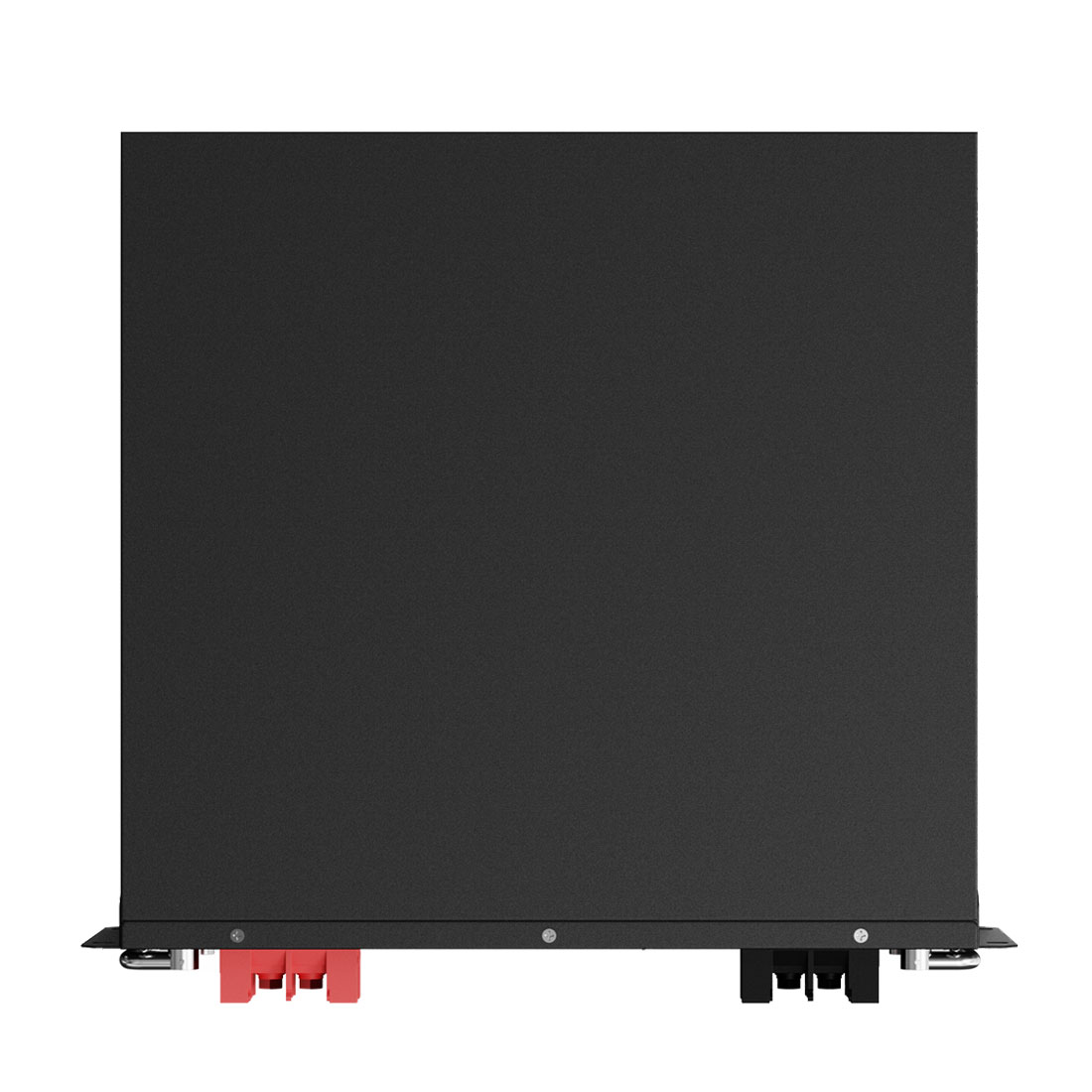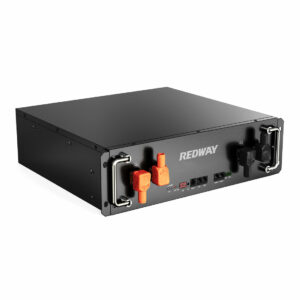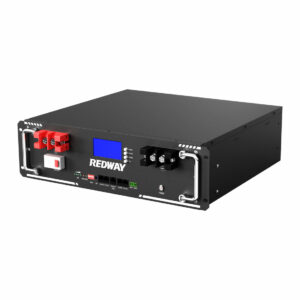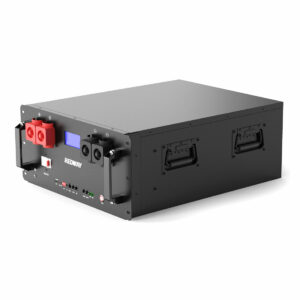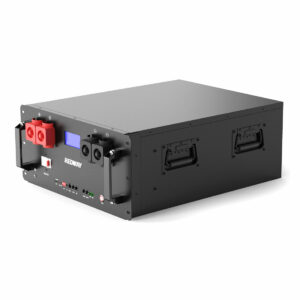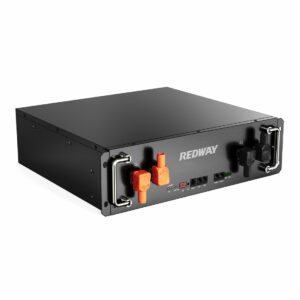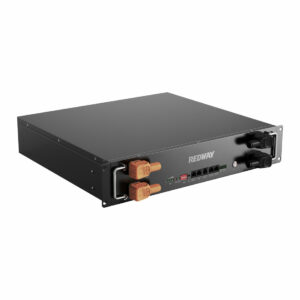Description
This 48V 100Ah LiFePO4 battery delivers a robust 4.8 kWh of energy storage, making it ideal for applications such as C&I ESS, data centers, telecom base stations, schools, hospitals, and residential ESS. Its compact 3U rack design (440x440x136 mm) and weight of 39 kg allow for easy integration into existing systems. The battery supports up to 16 parallel connections, customizable to 32, and provides an impressive 8000 cycles at 80% depth of discharge (DOD), ensuring long-lasting performance and reliability.
Equipped with a JBD communication BMS, RS485 interface, LCD display, and built-in circuit breaker, this battery offers advanced monitoring and safety features. It is compatible with major inverters such as Victron, GOODWE, and Deye, and holds certifications including UL1642, UL1973, IEC62619, and CE for safety and quality assurance. With a 20-year design life and optional upgrades like Bluetooth, WiFi, and thermal fire suppression, this battery provides scalable, efficient, and secure energy storage solutions for diverse environments.
What Makes the 48V 100Ah Rack-mounted Lithium Battery by RackBattery OEM a Top Choice?
The 48V 100Ah Rack-mounted Lithium Battery by RackBattery OEM is a high-performance, modular LiFePO4 battery designed for reliable energy storage in telecom, data centers, UPS, and renewable energy systems. Featuring advanced BMS, scalable design, and over 6,000 cycles at 80% depth of discharge, it delivers 4.8 kWh of efficient, safe, and long-lasting power in a compact 3U rack form factor.
How Does the 48V 100Ah Rack-mounted Lithium Battery Operate?
This battery utilizes lithium iron phosphate (LiFePO4) cells to provide a nominal voltage of 48V and a capacity of 100Ah, yielding 4.8 kWh of energy. The integrated Battery Management System (BMS) continuously monitors cell voltage, current, temperature, and state of charge to protect against overcharge, over-discharge, short circuits, and thermal issues. This intelligent management ensures optimized battery life, safety, and seamless integration into 19-inch rack systems.
What Are the Key Specifications of the PM-LV48100-3U Battery?
| Parameter | Specification |
|---|---|
| Nominal Voltage | 48V |
| Capacity | 100Ah |
| Energy | 4.8 kWh |
| Cycle Life | >6,000 cycles (80% DOD) |
| Dimensions (L×W×H) | 442 × 410 × 133 mm (3U rack) |
| Weight | 45-50 kg |
| Communication | RS485, CAN, LCD/LED display |
| Scalability | Up to 16 units in parallel |
| IP Rating | IP21 (Indoor use) |
These specifications highlight a balance of compact design, high energy density, and robust performance.
Which Industries Benefit Most from This Rack-mounted Lithium Battery?
The 48V 100Ah battery is widely used in:
-
Telecommunications: Ensuring uninterrupted power for base stations.
-
Data Centers: Reliable backup power for critical servers.
-
Renewable Energy Systems: Solar and wind energy storage.
-
Industrial Automation: Powering UPS and control systems.
-
Commercial and Industrial ESS: Scalable energy storage solutions.
RackBattery’s modular design supports scalable deployments across these sectors.
Why Is LiFePO4 Chemistry Ideal for Rack-mounted Batteries?
LiFePO4 chemistry offers superior thermal stability, safety, and long cycle life compared to other lithium-ion types. It reduces risks of thermal runaway, maintains stable voltage output, and provides over 6,000 cycles at 80% depth of discharge, ensuring long-lasting, safe, and cost-effective energy storage.
How Does RackBattery Ensure Quality and Safety?
RackBattery adheres to stringent quality control and international certifications such as ISO 9001:2015, UL1973, UL1642, CE, and UN38.3. Their advanced BMS technology provides real-time monitoring, cell balancing, and fault protection. The company’s four production facilities in Guangdong, China, maintain consistent manufacturing standards and rapid delivery, backed by comprehensive after-sales support.
Can the 48V 100Ah Battery Be Customized?
Yes, RackBattery offers OEM and ODM customization including BMS configurations, communication protocols, enclosure design, and capacity adjustments. This flexibility enables tailored solutions for unique industrial and commercial requirements.
How Is the Battery Integrated with Energy Management Systems?
Equipped with RS485 and CAN communication interfaces plus LCD/LED displays, the battery supports seamless integration with popular inverters and energy management platforms. Real-time data monitoring and firmware updates allow optimized system performance and predictive maintenance.
What Certifications and Standards Does This Battery Meet?
RackBattery’s 48V 100Ah battery complies with:
-
UL1973, UL1642 for safety and transport
-
IEC62619 and CE for quality and environmental compliance
-
RoHS for hazardous substance restrictions
These certifications guarantee safe, reliable operation in mission-critical environments.
How Can Users Maximize Battery Life and Performance?
To maximize lifespan, operate within recommended temperature ranges and avoid deep discharges beyond 80% depth of discharge. Utilize the smart BMS for charge control and cell balancing. Regular monitoring and maintenance ensure consistent performance and safety.
When Should Businesses Consider Upgrading to Rack-mounted Lithium Batteries?
Businesses should upgrade when seeking higher energy density, longer lifespan, reduced maintenance, and enhanced safety compared to lead-acid or older battery technologies. Rack-mounted lithium batteries offer scalable, efficient, and eco-friendly solutions for modern energy needs.
RackBattery Expert Views
“The PM-LV48100-3U battery exemplifies RackBattery’s commitment to delivering high-quality, scalable energy storage solutions. Its combination of advanced LiFePO4 chemistry, intelligent BMS, and modular rack design provides unmatched safety, longevity, and integration ease. Our global clients trust RackBattery for mission-critical applications where reliability and performance are paramount.” — Senior Engineer, RackBattery


